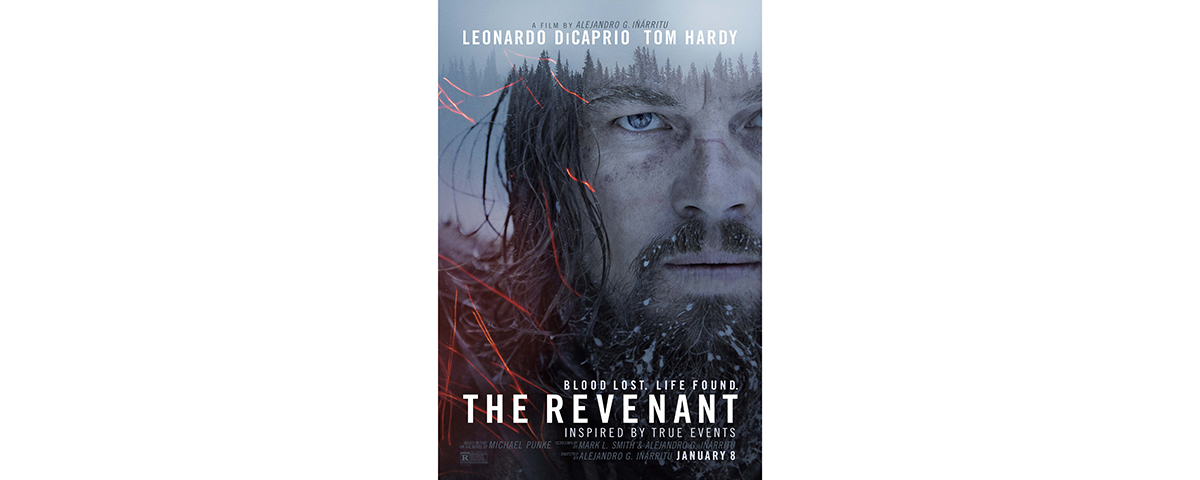The Revenant, 20th Century Fox, 156 minutes, 2015
Equal parts revenge saga and survival story, Alejandro González Iñárritu’s The Revenant was inspired by the frontier tale of Hugh Glass, who in 1823, against all odds, endured a mauling by a she-grizzly and abandonment to his fate by his fellow fur trappers. Those before and behind the cameras went to painstaking lengths to re-create the unforgiving Montana frontier and the rough characters who inhabited it. Although the narrative falls short—the journey of Glass (portrayed by Leonardo DiCaprio) fails to reach any sort of emotional or psychological plateau—the visually magnificent film succeeds with three transcendent sequences. First is an Arikara Indian attack on the trappers’ camp, in which Emmanuel Lubezki’s camera ceaselessly floats across the battlefield from one mano a mano conflict to the next; second is the achingly long and bloody brawl between Glass and the bear; last comes the equally violent showdown between Glass and John Fitzgerald (Tom Hardy), one of the duo who left him to die.
DiCaprio won the best actor Oscar for huffing and puffing his way through the scenery as Glass—quite a transformation from his last role as Jordan Belfort in The Wolf of Wall Street (among the more memorable comedic performances in recent memory). What’s most impressive here is the actor’s ability to wholly embody the desperation of a man pushed time and again to his physical breaking point by his harsh surroundings. The same can be said for co-star Hardy. Viewers forget they’re watching two well-paid actors playing in the snow. That authenticity is the film’s strongest selling point.
Their performance is also a credit to director Iñárritu, who in relating this story of ultimate human resilience expects the same from not only his actors but also his audience. He won the best director Oscar for his efforts. The Revenant is a brutal, relentless and powerful film. To be absorbed by it for the 2½-hour run (and sometimes crawl) is emotionally draining. Iñárritu strives to project all of Glass’ anguish, grief and despair onto his audience—and he mostly succeeds. Needless to say, the film is not for everyone’s taste.
The most common critique of The Revenant, and of much of Iñárritu’s past work, is its unrelenting coldness and solemnity. There is a stark lack of humor. But ultimately the film succeeds by virtue of being a perfect marriage between directorial style and subject matter: What better way to illustrate an unforgiving landscape than with unforgiving cinema?
—Louis Lalire





